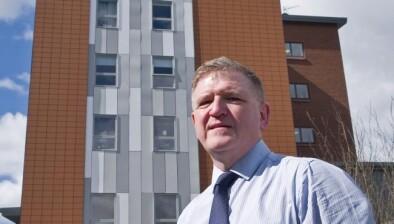Struggling households ‘dealt further blow’ as Ofgem price cap rises 2%

A tough winter is in store for thousands of Scottish households after Ofgem confirmed that the energy price cap is due to rise again in October, Scottish charities have warned.
Energy regulator Ofgem announced today that the cap on what suppliers can charge will rise slightly from £1,720 to £1,755 from October 1.
The 2% increase on the current level will see the average bill rise by £35 per year. Current forecasts suggest the price cap will fall slightly in January.
The new price cap is £617 more than the amount that households were being charged before the energy crisis hit in the autumn of 2021, an increase of 54%.
Advice Direct Scotland said people’s budgets were being stretched “to the limit”.
The charity said the persistently high cost of gas and electricity underlined why the UK needs a social energy tariff, which would automatically put the most vulnerable customers on the cheapest deals.
Eligibility for such a tariff could be determined by factors such as whether members of a household are in receipt of benefits or are on low incomes.
Jillian Edmund, energy project lead at Advice Direct Scotland, said: “A rise in the price cap from October is unwelcome news for Scottish households, especially as we move into autumn and people start to use more energy on heating their homes.
“The cost of living is still extremely high, and people are spending hundreds of pounds per year more than before the energy crisis hit, with household budgets stretched to the limit – that’s why Advice Direct Scotland is calling for a social energy tariff for vulnerable groups.”
Advice Direct Scotland is also highlighting differences in regional standing charges, putting Scottish consumers at a disadvantage. Revised standing charges from October will result in residents in southern Scotland paying 56.55 pence per day for electricity, compared to their counterparts in London who will pay 46.06 pence.
A larger proportion of Scots also lack access to the gas grid, relying on the more expensive electric rate for heating and cooking.
In southern Scotland, the gas unit rate will decrease to 6.24 pence per kilowatt-hour (kWh), while electricity will be priced at 25.84 pence.
Citizens Advice Scotland (CAS) said the energy price cap rise of 2% is “a further blow to struggling households”.
CAS director of impact David Hilferty said: “This new increase will pile even more pressure on the thousands of people across Scotland who are already unable to afford their energy bills. It will mean more people suffering the cold and going without food or warmth as we head into the winter. This is unacceptable.
“This week we published figures showing that the number of people in debt to their energy companies is higher than ever. Today’s announcement will be a further blow to those households.
“The energy market is broken and need major reform. Price cap adjustments every three months are not the solution people need. We need government, regulators and energy companies all to step up and urgently deliver lasting solutions like a social tariff and a robust scheme for energy debt relief. Solutions that stop people from experiencing harm.”
Katherine Crawford, chief executive of Age Scotland, said: “The latest energy price cap rise will come as devastating news to older people in Scotland on low or modest incomes. Energy bills are already largely unaffordable for those on the lowest incomes and being faced with yet another price hike just before winter is a cruel blow.
“Our research shows the extent to which the price of energy has shot up over the past five years – the average annual gas bill in 2020 was £600 compared to £1368 in 2025. Electricity prices have increased even more over the same period - £612 then and £1650 now.
“Rising prices when household energy consumption is set to increase will be a tough pill to swallow for older people on low and modest incomes living in energy inefficient homes. They are already paying a disproportionately high price with many left unable to cope during the coldest months of the year.
“The shocking cost of energy has forced many older people to cut back on heating and cooking hot food, both of which are damaging to their health and wellbeing. It should be regarded as a national disgrace that some older people in Scotland had to stay in bed to keep warm last winter or struggle to care for someone diagnosed with a terminal illness because they can’t afford to heat their home properly.
“We really hope the return of a heating payment for pensioners this winter will help people have the confidence to use their heating when it is needed. But with such a high number of older people living in fuel poverty, more national action is needed to help them reduce the amount of energy they need to use through better insulation and more efficient heating systems, as well as help to pay the bills.
“Older people can call our free helpline on 0800 12 44 222 for energy advice, support with bills, information about their tariff and other options, and ensuring that they are receiving all the support they are entitled to.”
Consumer Scotland head of energy markets Barry Coughlan added: “Energy bills continue to be high and this increase comes at a time when many households and businesses are already coping with a range of budgetary pressures.
“Affordability and debt remain significant challenges for many households and it is crucial that energy companies, the regulator and governments do all they can to support customers struggling with their bills.
“Consumer Scotland has recommended Ofgem develop a Debt Relief Scheme that is fair, appropriate and meets the needs of consumers in Scotland and we are supporting them to deliver it.
“We have previously recommended that the UK and Scottish governments take action to provide more targeted affordability support for those consumers who need it the most as quickly as possible, and this remains a key priority.”






